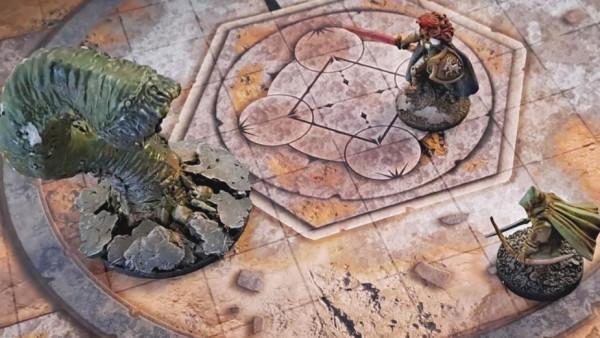Home › Forums › News, Rumours & General Discussion › Is wargaming just "make believe" with dice? › Reply To: Is wargaming just "make believe" with dice?
For me it has always been primarily about the story not the mechanics. I’m capable of doing complex mental arithmetic but choose not to in a “fun” context where I want to relax and be in a mindset that has nothing to do with my work. My work involves running a business, and in a sense this is a “game” where I “win” if the numbers end up more positive than expectations, and “lose” if they are more negative, but with real world results that are about people’s livelihoods. I don’t want to replicate that mechanical, gamey feeling in my off time. So I tend to prefer “adventure” games, and treat the rules more as just a necessary evil to determine what happens in a fair an reasonably objective way. I am fortunate to have gaming buddies who think similarly and we are quite happy to ditch the rules in a game and just flip a coin or bring in a mechanic from another game if we find an existing rule is too complex or we can’t remember it, or simply can’t be bothered to look it up in the book mid game.
I wouldn’t class this as “better” or “more correct” than a “ruleslawyer” way of playing the game as these are our toys, its up to us how we play with them, and provided both opponents enjoy the social contract of the type of game being played, all is good. After all, many people play chess for fun, and good luck to them. I suspect this very mindset that there is a “correct” way somehow to play games is a product of the rules-first thought processing though? My perception is that the question is not a binary one, and entirely without a right or a wrong answer.
Also, sometimes, just sometimes, I do enjoy a game of chess, just because I am a human being and inconsistency is what we do!
I guess that’s what happens when an engineer asks a philosopher a question?





























![How To Paint Moonstone’s Nanny | Goblin King Games [7 Days Early Access]](https://images.beastsofwar.com/2024/12/3CU-Gobin-King-Games-Moonstone-Shades-Nanny-coverimage-225-127.jpg)









































